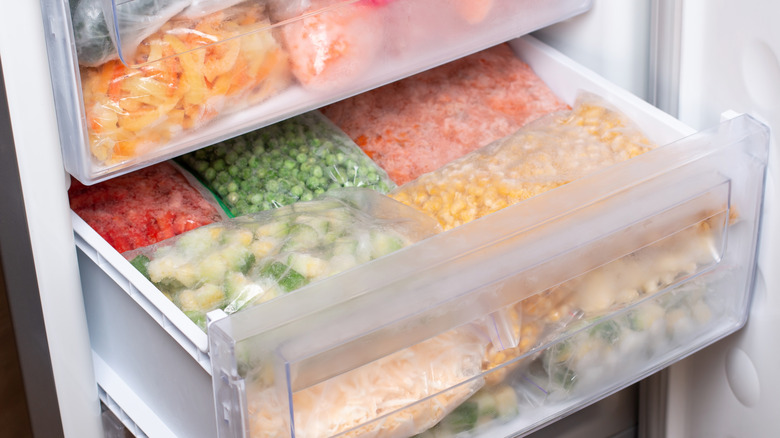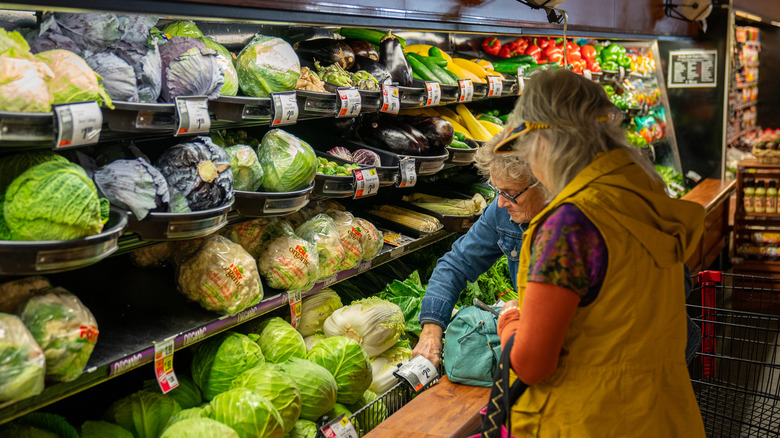Are Frozen Vegetables More Nutritious Than Fresh?
Remember being a kid and being forced to eat all the broccoli on our plate before we were allowed to get down from the table? "Eat your vegetables" is still the advice we continue to hear as grownups, in order to maintain our health and ward off chronic diseases such as diabetes.
Experts advise us to eat at least 2 ½ – 3 cups a day, with men being told they should eat even more, and yet according to the CDC, merely 10% of adults are getting this required amount. The reasons (or excuses) people give for not eating enough veggies are varied. Because we are always looking to save time, extra visits to the grocery store, in order to purchase fresh vegetables, become a consideration. Likewise, the effort to chop up and cook vegetables takes longer than just microwaving already prepared ones. And with current food prices being so high, the price of fresh produce can be burdensome.
The debate over fresh vs. frozen vegetables then comes into play, especially as we try to be conscientious about eating well while also factoring in the convenience factor. But is one really better than the other?
Fact or myth: Fresh is more nutritious
Despite popular belief, a 2017 study showed no difference between frozen vs. fresh vegetables in terms of vitamin content — in fact, it was found that frozen ones had a higher amount of nutrients than fresh ones. This is primarily because in order to ship fresh produce, vegetables are harvested before completely ripe, thus the amount of vitamins and minerals is less than when they are ripened fully on the vine.
During travel, fresh produce is exposed to light and heat, which can cause vitamins to deteriorate. A good example is frozen peas and spinach, which were found to have more vitamin C than the fresh ones stored at home after a few days. During transportation, the folate content in fresh spinach drops so much that frozen is better, and one cup of frozen spinach has four times the nutrients of vitamin C, calcium, and iron than an equal cup of fresh spinach. Surprisingly, a further study showed that the process of freezing may actually increase fiber content by making it more soluble.
The preferred method of commercial freezing is the air blast method where "ultra-cooled air is blown on the food in a narrow tunnel, or by the indirect method, where the food is passed along metal plates cooled by a refrigerated liquid" (via Madehow). While nutritional value may not be compromised, the texture, color, and flavor can be.
So why go to the farmers market?
Everyone agrees that the taste of local farm vegetables or those picked fresh from your home garden can't be beaten, but it is not always available, especially in the winter. If you do buy fresh, because of the shorter shelf life, vegetables can spoil and end up thrown out into the compost bucket.
Also, there is a cost difference between the two: fresh vegetables can be twice the price of frozen. Still another advantage of frozen for the consumer is not only cost but time: the prep work is much longer for fresh vegetables considering the extra time it takes to wash and slice them. On the other hand, when replacing frozen veggies in certain recipes, it could be necessary to thaw and drain the liquid before using, and this can then negate the potential time savings.
In the end, whether to use frozen vs. fresh vegetables is down to availability, your budget, and how quickly you will be using them. Although die-hards will remain loyal to their belief in the superiority of eating only the freshest ones they can find, it is good to know that there are equal benefits — and sometimes more — to the ones in the frozen aisle.


